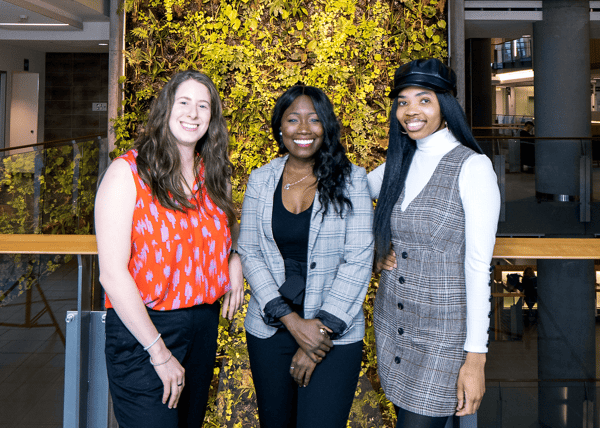Rébecca Robillard, health researcher and CIHR grant recipient, will examine the impact of the...


Rébecca Robillard, health researcher and CIHR grant recipient, will examine the impact of the...

In July 2022, our team of graduate students and faculty from the School of Psychology were honoured...

Thanks to support from Professor Vanthuyne, the Wìdòkodàdodà (Building Together) research project,...

In this article, we're diving into the world of urban public transport megaprojects and the pivotal...
Indigenous Resurgence and Environmental Justice in Taiwan
Of the 476 million Indigenous people around the world, nearly 70% live in Asia. Taiwan, although it is best known for semi-conductors and tensions with China, is also home to some 580,000 Indigenous people, or about 2.5% of the country’s population.
Speakers of Austronesian languages, thus related to other peoples across the Pacific Ocean, they are determined to keep their languages, cultures, and political systems alive on their traditional territories. By economic standards such as income and employment they are wealthier than First Nations in Canada, but they still seek greater recognition of their inherent sovereignty as promised in the United Nations Declaration for the Rights of Indigenous Peoples and in Taiwan’s own domestic legislation. They are also involved in many local struggles for environmental justice.
When first I went to Taiwan to do my Ph.D. research in 1996, I was interested in Taiwan’s Chinese culture and initially knew nothing about even the existence of its Indigenous peoples. At that time, Taiwan was emerging from 40 years of authoritarian martial law. Indigenous peoples, who had been forced to learn Mandarin and even adopt Chinese names, were just beginning to assert themselves in a new democracy. 1996 was the year of Taiwan’s first direct presidential election, the Third Taiwan Strait Crisis, and the establishment of the cabinet-level Indigenous Peoples’ Council. Taiwan had, in 1992, just adopted democratic legislative elections, and Indigenous peoples had a guaranteed quota of representatives. In 1997, the rights of Indigenous peoples were incorporated into additional articles to the Constitution. I was there at an exciting time when both legal indigeneity in the capital city Taipei and a grassroots Indigenous resurgence were coming into existence.
After I got my first part-time teaching job at the National Dong Hwa University (NDHU) in Hualien, Taiwan, I met environmental activist Igung Shiban of nearby Truku Nation. She asked me to collaborate with her by doing research in her community on the social impact of a cement quarry and factory. I started by writing an article on that topic for Cultural Survival. Nonetheless, when I got a tenure-track position at the University of Ottawa, she was very worried that I would no longer be able to work with her. I promised her that I only had to teach in Canada for half the year, and that I would dedicate all of my research time in the other months to working with her and others on issues of development and environmental justice. For twenty years, I kept my promise to Igung. I even brought three cohorts of uOttawa students to Taiwan to learn about environmental issues with the Truku. I only stopped going in 2020, because the COVID-19 pandemic restricted all travel to Taiwan by non-residents and made my visits impossible. Unfortunately, she passed away during that time, but I was able to communicate with her husband on social media.
The pandemic gave me an opportunity to stay at home and work on publications. Two of them happened at the initiative of Indigenous scholars and cultural workers. Professor Jolan Hsieh, a human rights and justice scholar from the Siraya Nation, invited me to co-edit a volume Indigenous Reconciliation in Contemporary Taiwan
From Stigma to Hope with her. I treasured the opportunity to work with her, three other Indigenous authors, as well as the other editor Peter Kang and a whole team of Taiwan and international scholars all working on Indigenous justice and reconciliation. Taiwan is engaged on a grassroots and societal process of reconciliation and transitional justice that, in spite of its inevitable flaws, goes beyond Canada’s state-centric approach. This book is about those efforts.
In another project, I accepted an invitation to translate from Chinese to English an illustrated volume Sun Eggs, Clay Pot, Hundred-paced Viper, that had been written by Lim Siu-theh in collaboration with the Paiwan Nation. I have long admired the rich material
culture of the Paiwan Nation, and was honoured to be able to share with the English-speaking world the literary tradition that is embodied in Paiwan clay pots and wooden carvings. These two books are now on display on the first floor of the Faculty of Social Sciences.
It is not an easy task for a non-Indigenous person to do research in Indigenous communities, not least because it requires a long-term commitment. In Taiwan, my research has been facilitated by the fact that the colonizers there have, in living memory at least, from Japan and China rather than from Europe. I thus appear to the community as a foreigner rather than as a settler. People like Igung always remind me that they want me to help them internationalize knowledge about their communities. Some people even call me their ambassador. They never let me forget that we are all related, and that we must all strive for social justice wherever we may find ourselves. My goal is to share Taiwan’s Indigenous realities with readers in both English and French. I also hope that my publications can be a part of international relations between Indigenous peoples of Taiwan and First Nations and other Indigenous peoples of Turtle Island. We are all related.
By Scott Simon
Scott Simon is a socio-anthropologist (Ph.D., McGill University, 1998). He is co-holder of the Chair of Taiwan Studies at the University of Ottawa. Additionally, he has conducted fieldwork in Guam and Japan. His areas of interest in research are indigenous rights, development, Taiwan's involvement in the Indo-Pacific, its international standing, and relations between Taiwan and Canada. He has written four books and numerous articles about Taiwan. As a Senior Fellow at the Macdonald-Laurier Institute in Ottawa and a member of the Centre for International Policy Studies and the Human Rights Research and Education Centre at the University of Ottawa, he conducts research poliy-oriented research.Also Read